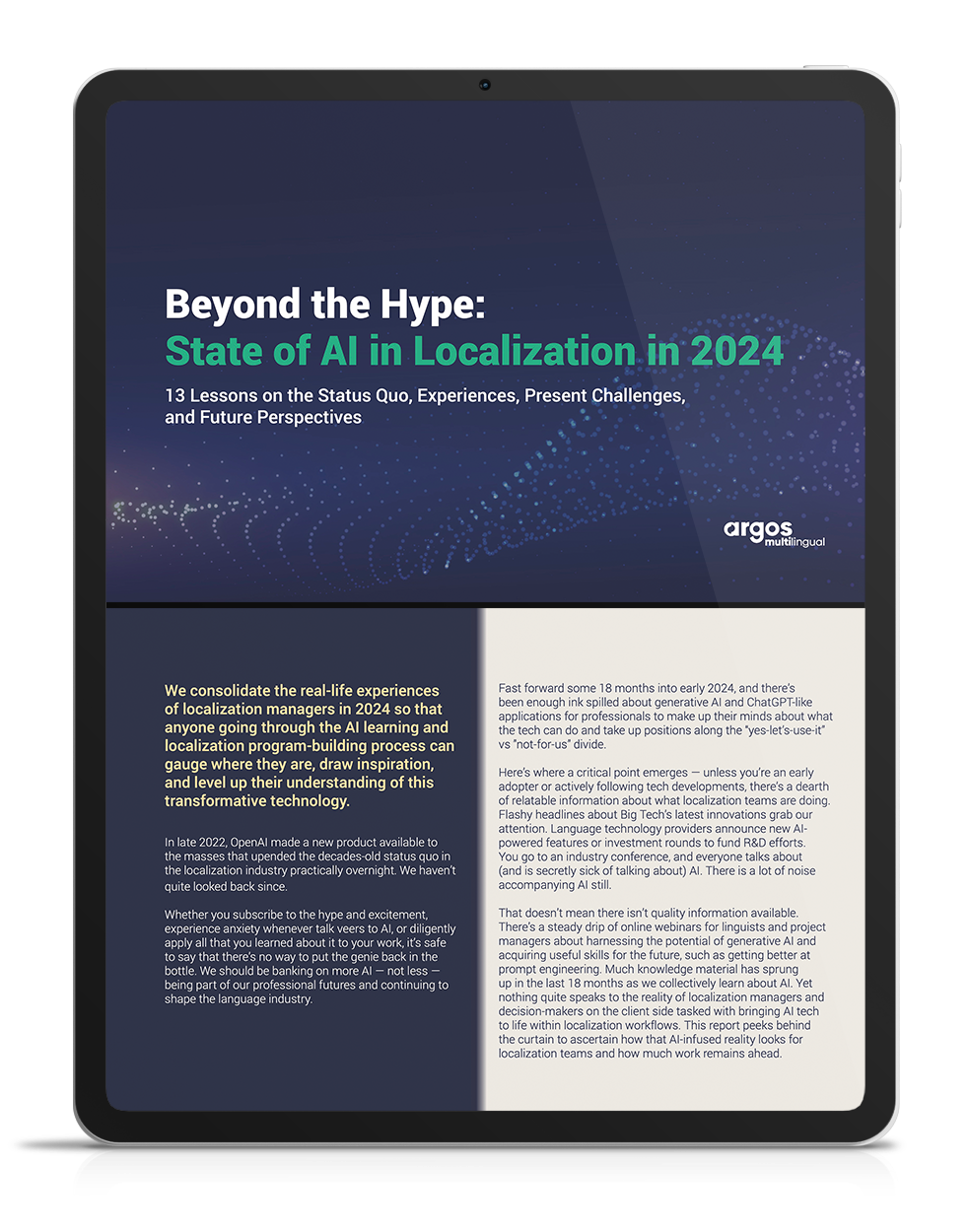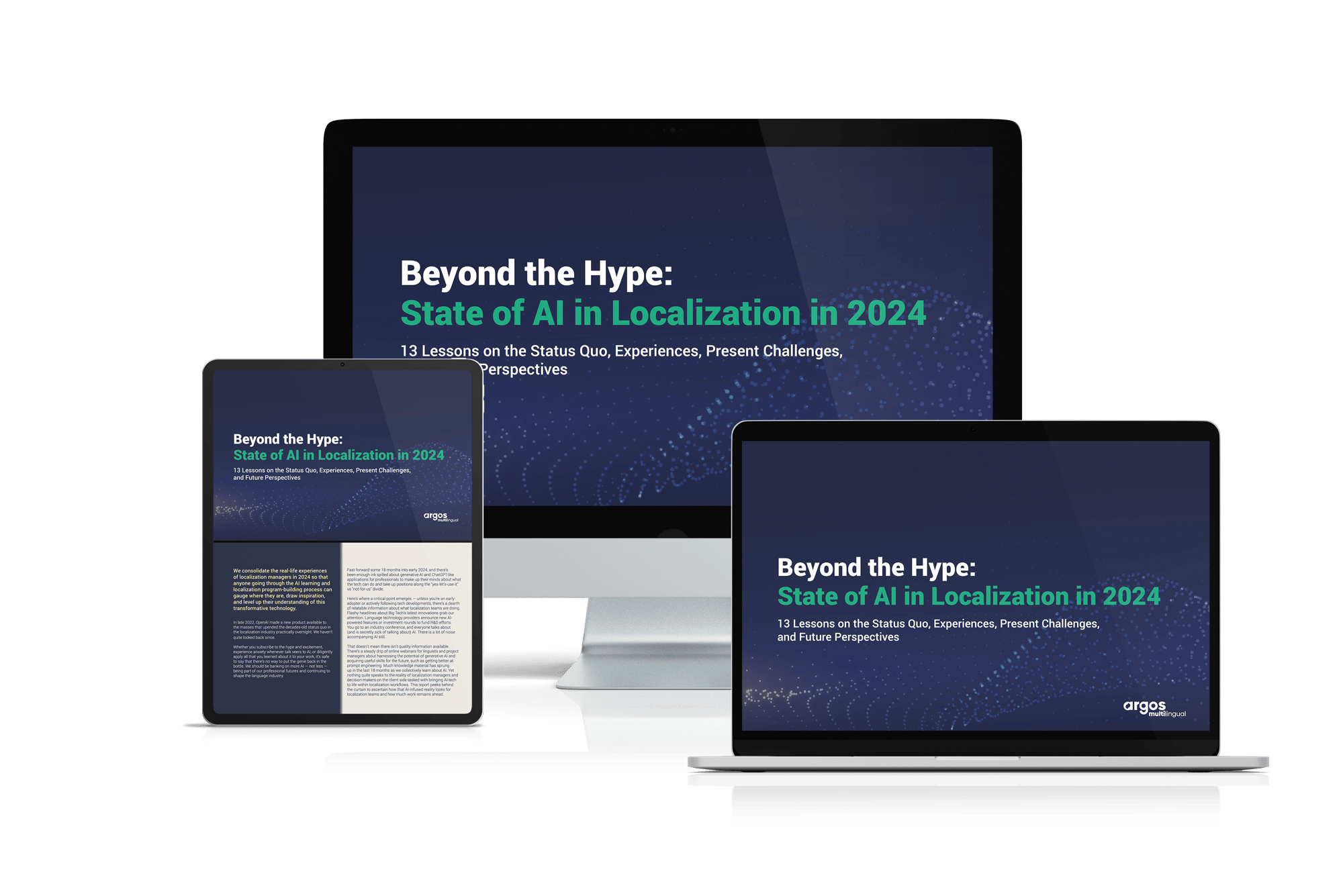We consolidate the real-life AI experiences of localization managers in 2024.
There is no such thing as too much information, especially about AI. We’re not far removed from ChatGPT appearing in our lives and are still at an early stage of AI in localization. There is such a thing as insufficient practical insights about whether your team should pick it up and where to start. It is easy to get overwhelmed by all things AI.
What is this report?
This report is from localization managers for localization managers. Everyone in the language industry — and beyond — is adapting to the new AI reality and experiencing the same growing pains. We document 13 lessons shared by localization decision-makers and offer 13 recommendations on making the most of what AI offers localization teams today.
Behind the Report
-
Who we talked to: 8 director-level localization veterans
-
Industries: Software, hardware, life sciences, tourism, and hospitality
-
Average localization team size: 69
-
Average number of languages supported globally: 51
-
Combined years of localization experience: 153
-
Combined reach: 1+ billion global customers

AI hype is irrelevant. Everyone is putting the reps in.
AI may or may or may not be overhyped. But for you, that shouldn’t matter. Now is the time to roll up your sleeves and determine how AI fits into your localization ecosystem. AI may be in flux and developing rapidly, but the hands-on practice you put in today, learning, testing what works, and pushing the limits of AI in localization, will serve you for years to come.
Forget the flash, focus on the function.
When you remove the distractions associated with AI, a cold, hard fact remains: You must start taking action on AI today. AI is strategically important to your company, and your team needs to get fluent with it as quickly as possible to continue positively influencing the global growth strategy.
AI will become an impactful part of the localization toolkit. Just how much it will transform localization remains to be seen.
You have your work cut out for you. AI in localization is yet another thing to add to your plate. You may need to start experimenting today and plan with it for the future. The challenge — and the opportunity — is that today’s practical use cases may look entirely different a few years from now. Then again, they may not. Regardless of how the future pans out, opinions converge around the transformative potential of AI.
Ask the right questions.
Find out how AI fits today, or imagine a wholly redesigned localization process where AI occupies a central place. AI may not be for everyone, and that’s fine. But there’s no denying it has the potential to alter localization operations significantly. And here comes the hard part: You may need to ask tough questions and rethink your team’s roles.
Learn what the AI status quo is… and challenge it


